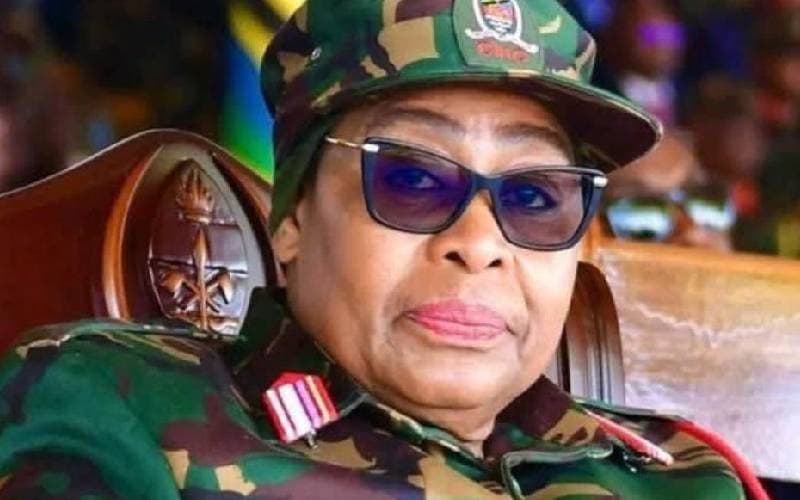We're loading the full news article for you. This includes the article content, images, author information, and related articles.
The election is set to extend the six-decade rule of Chama Cha Mapinduzi, raising questions for regional stability and democratic health within the East African Community.

Tanzanians are heading to the polls today, Wednesday, 29 October 2025, for general elections to choose a president, members of parliament, and local councillors. The election sees incumbent President Samia Suluhu Hassan of the long-ruling Chama Cha Mapinduzi (CCM) party seeking her first popular mandate after assuming office in March 2021 following the death of her predecessor, John Magufuli.
More than 37.6 million voters are registered to participate, according to the Independent National Electoral Commission (INEC). However, the election is proceeding in a political climate that international observers and human rights groups have described as deeply constrained and uncompetitive. The country's two largest opposition parties, Chama cha Demokrasia na Maendeleo (Chadema) and the Alliance for Change and Transparency (ACT-Wazalendo), have been barred from participating in the presidential race.
Chadema was disqualified by the INEC in April 2025 after it refused to sign an electoral code of conduct, demanding more substantial electoral reforms first. The party's prominent leader, Tundu Lissu, was arrested in April on charges of incitement and treason and has been barred from the election. Similarly, ACT-Wazalendo's presidential hopeful, Luhaga Mpina, a defector from the ruling party, was also disqualified from the race. This leaves President Hassan to compete against 16 candidates from smaller parties, a situation critics say creates a veneer of competition while ensuring no significant challenge to the CCM's dominance.
Human rights organisations have raised serious alarms about the pre-election environment. Amnesty International released a briefing in October 2025 titled, “Unopposed, unchecked, unjust: The disquiet beneath the 2025 Tanzania vote,” documenting a pattern of intensified repression. The report cited arbitrary arrests, assaults, and enforced disappearances of opposition members, activists, and journalists, creating what it called a "climate of fear." The government has dismissed these allegations as “unsubstantiated and misleading.”
Despite initial hopes for democratic reforms when President Hassan took office, her administration has been accused of taking an increasingly repressive turn over the past two years. While she lifted a ban on political rallies in early 2023, subsequent electoral reforms were criticised as cosmetic. The government's actions have drawn criticism from international bodies, with the U.S. Senate's Foreign Relations Committee stating the arrests and intimidation “undermine Tanzania's democracy.”
President Hassan's campaign has focused on her economic record, highlighting achievements in infrastructure, education, and stability. Tanzania's economy has shown resilience, with growth projected to surpass 6% by the end of 2025 and stable inflation. The International Monetary Fund and the African Development Bank have commended the country's fiscal reforms. Key sectors driving this growth include mining, agriculture, and manufacturing.
However, critics argue that this economic stability is coming at the cost of democratic erosion. The lack of a competitive political landscape, they contend, limits transparency and public choice, potentially increasing policy uncertainty in the long run. Key issues for voters remain service delivery, including access to clean water and reliable electricity, and creating employment opportunities for the nation's large youth population.
The political situation in Tanzania, a key partner within the East African Community (EAC), has significant implications for Kenya and the wider region. A stable and democratic Tanzania is crucial for cross-border trade, regional security cooperation, and the overall health of the EAC bloc. Any post-election instability or a crisis of legitimacy could disrupt this vital partnership.
Both the EAC and the Southern African Development Community (SADC) have deployed election observation missions to Tanzania. The EAC mission, led by former Ugandan Vice President Dr. Speciosa Wandira Kazibwe, consists of 67 observers who will monitor the process and issue a preliminary statement shortly after the election. The presence of these observers is seen as crucial, though their effectiveness in ensuring a fair process is debated, given the pre-election exclusion of major opposition figures. The conduct of the election and the resulting political environment will be a defining test for President Hassan's leadership and will undoubtedly shape Tanzania's role within the East African Community for the next five years.
Keep the conversation in one place—threads here stay linked to the story and in the forums.
Sign in to start a discussion
Start a conversation about this story and keep it linked here.
Other hot threads
E-sports and Gaming Community in Kenya
Active 9 months ago
The Role of Technology in Modern Agriculture (AgriTech)
Active 9 months ago
Popular Recreational Activities Across Counties
Active 9 months ago
Investing in Youth Sports Development Programs
Active 9 months ago
Key figures and persons of interest featured in this article